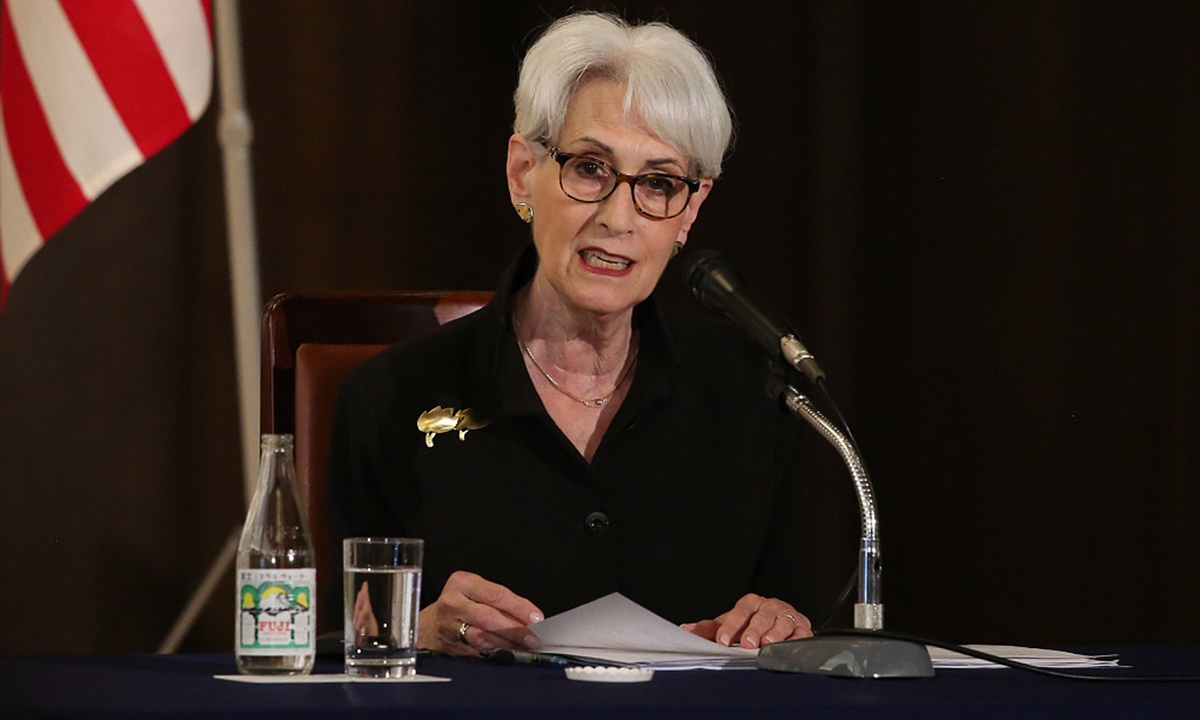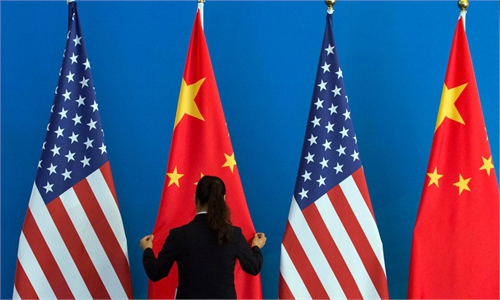
Wendy Sherman photo:CFP
US Deputy Secretary of State Wendy Sherman visited South Korea on Thursday, the last stop before her highly anticipated meeting with Chinese State Councilor and Foreign Minister Wang Yi and Vice Minister Xie Feng in North China's Tianjin, which will take place from July 25 to 26.
Although Sherman will be the highest-level US official to visit China under the Biden administration, amid deteriorating bilateral relations, Chinese political experts view the visit as one of "keeping in touch" rather than problem-solving. Moreover, Seoul and Tokyo, Washington's allies, have shown varying degrees of conservatism with the repetitive US "anti-China pattern."
The Global Times found that in South Korea's Yonhap News Agency's report covering Sherman's meeting with South Korean President Moon Jae-in and South Korean Foreign Minister Chung Eui-yong, no China-related issue was mentioned - only the background of trilateral talks in Tokyo, which involve the US' attitude toward China.
Following Sherman's meeting with the vice foreign ministers of Japan and South Korea in Tokyo on Wednesday, a statement from the US Department of State read that the three countries reaffirmed the need to maintain an inclusive, free and open Indo-Pacific, opposed unilateral attempts to change the status quo in the East China Sea, and emphasized the importance of preserving peace and stability in the Taiwan Straits.
Stressing the North Korean nuclear issue, the statement from South Korea's foreign ministry did not record any China-related issues in the talks between the South Korean foreign minister and Sherman on Thursday.
Lü Xiang, a research fellow at the Chinese Academy of Social Sciences in Beijing, told the Global Times on Thursday that the US' persistent anti-China lobbying is turning State Department officials into "pesky and annoying" characters.
Compared with China's positive attitude and active actions as a major power in the international community, Lü said that the US is constantly repeating negative anti-China statements in the ears of other countries, which makes the US State Department "quite creepy."
Observers said that holding the meeting with Sherman in Tianjin instead of Beijing is not a snub. Chinese Foreign Ministry spokesperson Zhao Lijian on Thursday explained that the arrangement stems from the capital's epidemic prevention considerations, and Tianjin is a nearby city.
Shi Yinhong, director of the Center for American Studies at Renmin University of China, told the Global Times on Thursday that sensitive issues will remain on the table at the Tianjin meeting, and China and the US will use every opportunity to reaffirm their fundamental positions.
Diplomatic contacts between the two governments in the past have shown that China and the US will stick to their positions on major issues, be it Xinjiang, Hong Kong and Taiwan, supply chain restructuring or the origins of COVID-19.
So even if the two sides arrange a high-level meeting, it's more about "keeping in touch," Shi said.
No matter where senior officials from China and the US meet, the US always meets with its allies to give the outside world the impression that the "US is united with its allies and dealing with China from a position of strength." Sherman's Japan-South Korea tour before meeting in Tianjin "is a fixed diplomatic pattern for the Biden administration," Shi said.
Ahead of China-US Alaska talks in March, the US held "2+2" diplomatic and security talks with Japan and South Korea.
From a positive view, "keeping in touch" is still much better than mutual scolding from a distance, as it will play an important role in preventing uncontrollable conflicts in regional hot spots like the South China Sea and Taiwan Straits, Shi said.
China will not make concessions on issues involving its core interests and national dignity, but China is also concerned about regional stability. Only by "keeping in touch" can China and the US prevent conflict, Shi said.



